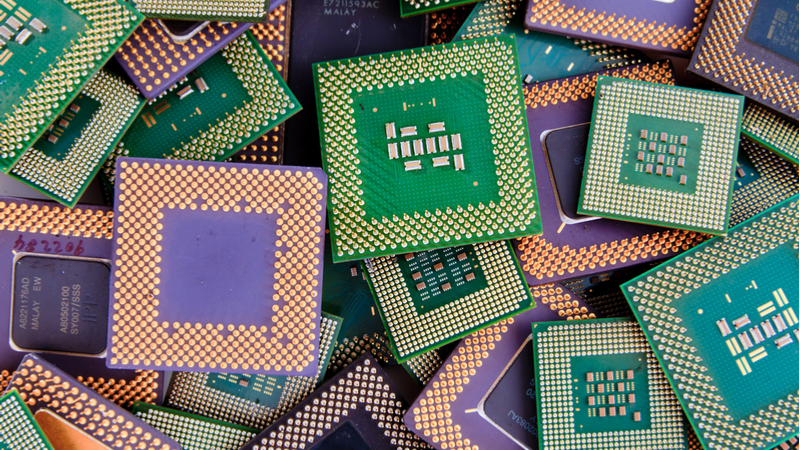
The Senate held a series of votes May 4 to instruct its 26 conferees on the direction the chamber wants them to take in negotiations on the USICA/COMPETES semiconductor, innovation, and competition legislation working its way through Congress.
The Senate voted to have conferees insist on including several items in the final legislation. These include incentives for semiconductor production, a requirement to create guidance for China’s digital yuan, and an insistence that funding is moved from climate action to the Defense Advanced Research Projects Agency (DARPA).
House passage of the America Creating Opportunities for Manufacturing, Pre-Eminence in Technology, and Economic Strength (COMPETES) Act in February set the stage for both chambers to hold a conference session to reconcile differences between the House bill and the Senate-approved United States Innovation and Competition Act (USICA).
Both bills include $52 billion in funding for the CHIPS Act to spur domestic semiconductor production, as well as billions more in funding for a new directorate at the National Science Foundation, and research and development initiatives.
While both chambers agree on many of the top-line items in the bill, the Senate is expecting more concessions from the House, as USICA passed the chamber with bipartisan support, while the America COMPETES Act passed closely along the party lines.
Detailed Senate Instructions
Among the Senate’s instructions to conferees, the body approved a motion to insist that the final bill includes incentives meant to increase semiconductor production. The motion was offered by Sen. Mark Kelly, D-Ariz., and was passed by a voice vote.
The Senate also approved a motion by Sen. Marsha Blackburn, R-Tenn., that would have the conferees insist that the final legislation include a provision for the Office of Management and Budget (OMB) to consult with other agency leads on the how to create guidance for agencies to have adequate security measures for transfer, storage, or use of digital yuan – a Chinese central bank digital currency – on IT systems.
Sen Blackburn’s motion passed by voice vote. If it makes the final version of the combined legislation, it would require the OMB director to consult with the General Service Administration’s administrator, the director of the National Institute of Standards and Technology, the director of the Cybersecurity and Infrastructure Security Agency, the Director of National Intelligence, the Federal Reserve Board’s board of governors, and the Secretaries of Treasury, Defense, and State on the guidance.
Also among the Senate-approved motions is one to instruct conferees to push the $8 billion contained in a Green Climate Fund in the America COMPETES Act to DARPA. The funds would then be authorized to be used for research and development, production, and procurement of weapon systems “needed to compete with China.”
That motion passed by a 50-44 vote when offered by Sen. Tom Cotton, R-Ark., after a similar one that would have merely stripped out the climate funding failed to pass.
The 107 conferees from the House and Senate were chosen before Congress left town for a state working period last month, and the Senate officially requested a conference April 28. The Senate reaffirmed those conferees with instructions May 4 and sent a message to the House on May 5 that senators have completed their pre-conference work.
